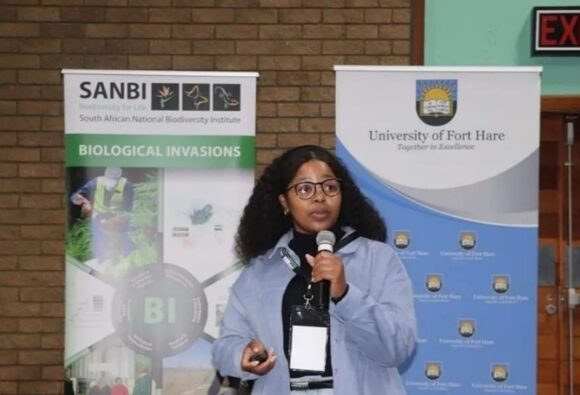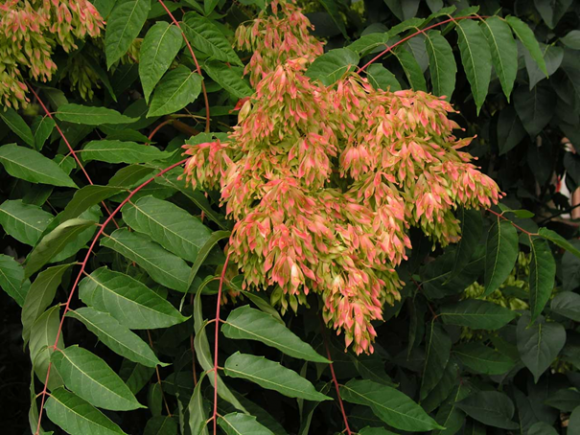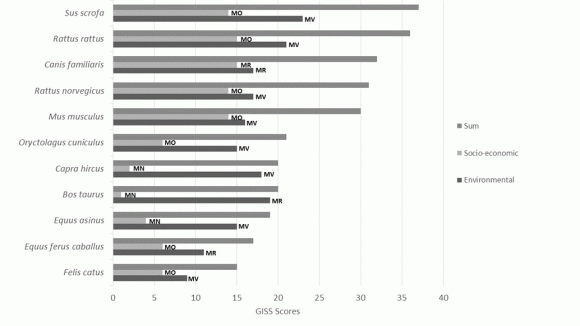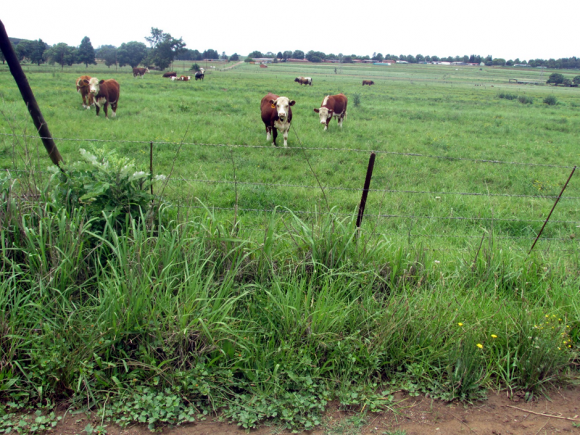A recent study by C∙I∙B funded PhD student, Nasiphi Bitani, and co-authors Dr Tinyiko Shivambu, Dr Ndivhuwo Shivambu, and C∙I∙B Core Team member Prof Colleen Downs assessed the impacts of fleshy-fruited alien plants invading KwaZulu-Natal coastal forests.
For their study, the authors focused on 16 plants with high-risk invasiveness due to their relationships with birds for seed dispersal services. The authors assessed the ecological and socio-economic impacts posed by these plants, using the Generic Impact Scoring System (GISS). Environmental impacts look at the alien species’ impacts on plants or vegetation, on animals, through competition, through disease transmission, through hybridisation and on the ecosystem. Whereas socio-economic impacts consider the impacts on agricultural production, animal production, forestry production, human infrastructure, human health and human social life.
The authors found that 12 of the species they assessed had environmental impacts and 14 had socio-economic impacts. Species with high impacts and some with high magnitude for certain mechanisms and that need to be prioritised for management included: lantana (Lantana camara), camphor tree (Cinnamomum camphora), white mulberry (Morus alba), American bramble (Rubus cuneifolius) and Brazilian pepper tree (Schinus terebinthifolius).
“The introduction pathways of fleshy-fruited invasive alien plant species need to be identified and managed to prevent their future spread,” says Nasiphi Bitani, first author of the study published in NeoBiota.
“Our study showed that impacts on human health, forestry and agricultural production were the main socio-economic impacts associated with fleshy-fruited alien species, with lantana and the tree of heaven (Ailanthus altissima) having the highest impacts. Lantana, for example, habours pests that cause major human health issues, whereas some fleshy-fruited plants form thick stands that reduce agricultural land productivity,” adds Bitani.
The study also showed that the impacts of many fleshy-fruited invasive plants are not yet documented.
Bitani recommends, “For future research, we need more studies to evaluate the impacts, especially the socio-economic impacts associated with fleshy-fruited invasive plant species.”
Read the full paper
Bitani, N., Shivambu, T.C., Shivambu, N. and Downs, C.T. (2022). An impact assessment of alien invasive plants in South Africa generally dispersed by native avian species. NeoBiota. https://doi.org/10.3897/neobiota.74.83342
For more information, contact Nasiphi Bitani at bitaninasiphi@gmail.com




